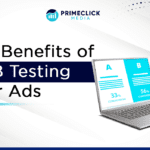In the current digital era, successful firms need to have a strong online presence. And when it comes to online visibility, search engine marketing (SEM) plays a pivotal role. By optimising your website for search engines, you can skyrocket your organic rankings, attract quality traffic, and boost your online visibility.
So, if you’re ready to level up your digital game, keep reading as we unveil some tried and tested strategies to optimise your website for search engine marketing.
However, understanding search engine marketing, its importance, and how it works is really important before starting with a marketing plan. Let’s start reading it!
What Is Search Engine Marketing?
Here are some points that easily describe what is search engine marketing.
SEM Unveiled
The Power of Visibility Search engine marketing, often referred to as SEM, is a digital marketing strategy that focuses on increasing a website’s visibility in search engine results pages (SERPs) through paid ads. It involves bidding on relevant keywords and displaying targeted ads to users who are actively searching for products or services similar to what your business offers. By leveraging SEM, businesses can position themselves prominently in search results, ensuring they’re visible to potential customers at the exact moment they express a need or interest.
Pay-Per-Click (PPC) Advertising
A Key Component of SEM At the heart of search engine marketing lies pay-per-click (PPC) advertising. With PPC, advertisers only pay when their ads are clicked by users. This model allows businesses to control their advertising costs and ensures they’re investing in results-driven campaigns. Popular PPC platforms, such as Google Ads, Bing Ads, and Yahoo Gemini, enable advertisers to bid on keywords relevant to their offerings, create compelling ad copy, and display their ads to a highly targeted audience.
The Power of Targeted Advertising
One of the key benefits of SEM is the ability to precisely target your audience. With SEM, you can define the demographics, geographic locations, and even specific search queries for which you want your ads to appear. This level of precision ensures that your ads are displayed to users who are most likely to be interested in what you have to offer. By reaching the right audience at the right time, SEM helps maximise your marketing budget and delivers a higher return on investment (ROI).
Immediate Results and Measurable Impact
Unlike some other marketing strategies that take time to yield results, SEM offers immediate visibility and measurable impact. As soon as your PPC ads are approved, they start appearing in search results, generating clicks and driving traffic to your website. With robust analytics tools and conversion tracking, you can measure the performance of your SEM campaigns in real-time. This valuable data allows you to make data-driven decisions, refine your strategies, and continuously optimise your campaigns for better results.
SEM vs. SEO
Understanding the Difference It’s important to differentiate between search engine marketing (SEM) and search engine optimization (SEO). While SEM involves paid advertising, SEO focuses on organic strategies to improve a website’s visibility in search results. SEO encompasses techniques like optimising website content, building high-quality backlinks, and improving site structure to rank higher in organic search results. Both SEM and SEO are essential components of a comprehensive digital marketing strategy, and they often work in synergy to maximise online visibility and attract qualified traffic.
Evolving Trends and Future Opportunities
The world of search engine marketing is continuously evolving, driven by advancements in technology and changing user behaviours. As voice search, mobile usage, and artificial intelligence (AI) become more prevalent, SEM strategies need to adapt and embrace these emerging trends. Businesses that stay abreast of the latest developments in SEM can seize new opportunities and gain a competitive edge in the digital landscape.
Why Search Engine Marketing Is Important For Your Business
When it comes to making your mark and capturing the attention of your target audience, search engine marketing (SEM) is a game-changer. Understand why search engine marketing is crucial for your business and how it can propel you ahead of the competition.
Tap into Relevant and High-Intent Traffic
Search engine marketing allows you to reach potential customers who are actively searching for products or services like yours. When users enter a search query, search engines display relevant ads based on their intent. By leveraging SEM strategies such as keyword targeting and ad positioning, you can position your business in front of users at the exact moment they express a need or desire. This means you’re more likely to attract qualified leads who are ready to take action.
Boost Brand Visibility and Credibility
Showing up prominently in search engine results increases your brand visibility and establishes your credibility in the eyes of potential customers. When users consistently see your brand in search results, they develop a sense of trust and familiarity. Even if they don’t click on your ad initially, the repeated exposure builds brand recognition and increases the likelihood that they’ll choose your business when they’re ready to make a purchase.
Maximise Return on Investment (ROI)
One of the most significant advantages of search engine marketing is its ability to deliver a high return on investment. Unlike traditional advertising channels, SEM allows you to target specific keywords and demographics, ensuring that your ads are shown to the right audience. With precise targeting, you can minimise wasted ad spend and maximise the impact of your marketing budget. Additionally, the ability to track and measure key performance metrics empowers you to optimise your campaigns continuously and achieve better results over time.
Stay Ahead of the Competition
In today’s rapid digital landscape, competition is fierce. Search engine marketing provides a competitive edge by allowing you to outshine your rivals in search engine results. By strategically bidding on keywords, creating compelling ad copy, and optimising your landing pages, you can rise above your competitors and capture the attention of potential customers. SEM empowers businesses of all sizes to compete on a level playing field and attract customers who may have otherwise been swayed by rival offerings.
Flexibility and Control
Search engine marketing offers unparalleled flexibility and control over your advertising campaigns. You can set your budget, define your target audience, and adjust your strategies in real-time. This means you can quickly adapt to market changes, capitalise on emerging trends, and experiment with different approaches to find what works best for your business. The ability to monitor and refine your campaigns ensures that you’re constantly improving and optimising your SEM efforts.
Integrated with Other Marketing Channels
Search engine marketing seamlessly integrates with other marketing channels, complementing your overall marketing strategy. By combining SEM with social media marketing, content marketing, and email marketing, you create a comprehensive and cohesive approach that amplifies your brand message across multiple touchpoints. The synergy between these channels helps increase brand recognition, engage your audience at different stages of their buying journey, and drive conversions.
In this era, search engine marketing is not just an option—it’s a must-have strategy for businesses looking to thrive in the online landscape. From reaching high-intent traffic and boosting brand visibility to maximising ROI and outshining the competition, the benefits of SEM are undeniable.
How Search Engine Marketing Works
Understanding Search Engine Marketing
Search engine marketing is a digital marketing approach that aims to increase a website’s visibility in search engine results pages (SERPs) through paid advertising. It involves leveraging search engines’ advertising platforms, such as Google Ads, Bing Ads, or Yahoo Gemini, to display targeted ads to users who are actively searching for specific keywords or phrases related to your business.
Keyword Research and Targeting
The foundation of effective search engine marketing lies in keyword research and targeting. It’s crucial to identify the keywords and search terms that your target audience is using to find products or services similar to yours. By conducting thorough keyword research, you can discover high-volume, relevant keywords with extremely high volume. These keywords will serve as the backbone of your SEM campaigns, ensuring your ads are displayed to the right audience at the right time.
Ad Creation and Optimization
Once you’ve identified your target keywords, it’s time to create compelling ads that captivate your audience. The key to success lies in crafting engaging ad copy that grabs attention and entices users to click. Your ad copy should align with the search intent of the user and highlight the unique value proposition of your business. A strong call-to-action (CTA) encourages users to take the desired action, whether it’s making a purchase, signing up for a newsletter, or requesting more information.
Bidding and Ad Placement
Search engine marketing operates on a bidding system, where advertisers compete for ad placement in search engine results. You’ll need to set a maximum bid for each keyword, which represents the amount you’re willing to pay when someone clicks on your ad. The search engine’s algorithms consider factors such as bid amount, ad quality, relevance, and user experience to determine ad placement. Higher bids and better ad quality increase the chances of securing a prominent position in search results.
Targeting and Reach
Search engine marketing provides robust targeting options to ensure your ads reach the right audience. You can define your target audience based on factors like location, demographics, interests, and even specific search queries. This precise targeting allows you to focus your advertising budget on users who are most likely to be interested in your offerings, maximising your return on investment (ROI).
Monitoring and Optimization
The success of your search engine marketing campaigns relies on continuous monitoring and website optimization. Analyse key performance metrics, such as click-through rates (CTRs), conversion rates, and cost per click (CPC), to assess the effectiveness of your campaigns. Use the insights gained to refine your keyword selection, ad copy, and bidding strategies. A/B testing different ad variations, landing page designs, and targeting options can help uncover optimization opportunities and improve campaign performance over time.
Measuring Success and ROI
The beauty of search engine marketing lies in its measurability. Powerful analytics tools provide in-depth data on campaign performance, allowing you to track conversions, understand user behaviour, and calculate your return on investment. By analysing the data, you can gain valuable insights into the effectiveness of your campaigns and make data-driven decisions to drive better results.
Search engine marketing is a dynamic and results-driven strategy that empowers businesses to reach their target audience with precision and impact. By understanding the inner workings of SEM, conducting thorough keyword research, creating compelling ads, optimising campaigns, and analysing performance metrics, businesses can harness the full potential of search engine marketing to drive targeted traffic, increase conversions, and achieve digital success in the competitive online landscape.
After knowing search engine marketing in brief, now it’s time for the entry of the main character in the picture. How to optimise your website for search engine marketing?
How To Optimise Your Website For Search Engine Marketing
Nail Your Keyword Research
Keywords are the foundation of successful search engine marketing. To find the terms and phrases your target audience is using to search for goods and services in your business, start by conducting extensive keyword research. Use reliable keyword research tools to discover high-volume, relevant keywords that align with your business offerings. Incorporate these keywords strategically into your website’s content, meta tags, headings, and URLs to improve your search engine rankings.
Craft Compelling and SEO-Friendly Content
Creating high-quality, engaging, and informative content is vital for search engine optimization (SEO). Develop a content strategy that addresses your audience’s pain points and provides valuable solutions. Incorporate your target keywords naturally within your content, ensuring a seamless reading experience. Make use of headers, bullet points, and visuals to enhance readability. Remember, great content not only attracts visitors but also encourages them to share, link, and engage with your website.
Optimise On-Page Elements
Pay attention to on-page optimization elements to ensure search engines can easily crawl and understand your website. Optimise your title tags, meta descriptions, and URLs with relevant keywords to improve click-through rates and search visibility. Make use of header tags (H1, H2, etc.) to structure your content and improve readability. Additionally, optimise your images by using descriptive alt tags, compressing file sizes, and providing relevant captions.
Build High-Quality Backlinks
Backlinks, or links from other websites to yours, are crucial for search engine optimization. They act as a vote of confidence in your website’s authority and relevance. Focus on earning high-quality backlinks from reputable and relevant sources within your industry. Engage in guest blogging, collaborate with influencers, and participate in industry forums to build your backlink profile. Keep in mind that when it comes to backlinks, quality prevails over number.
Enhance User Experience
Search engines prioritise user experience, so it’s crucial to optimise your website accordingly. Ensure website optimization for mobile, as a significant portion of searches now originates from mobile devices. Improve your website’s loading speed by optimising images, minimising HTTP requests, and leveraging caching techniques. Create intuitive navigation and a clear site structure to enhance user engagement and reduce bounce rates.
Leverage Local SEO
If you have a physical business presence, optimising your website for local searches is essential. Claim and optimise your Google My Business listing, ensuring accurate information such as address, phone number, and business hours. Encourage customers to leave reviews, as positive reviews contribute to higher search rankings. Additionally, create localised content and include location-specific keywords to attract local search traffic.
Analyse, Refine and Repeat
Finally, SEM is an ongoing process that requires constant analysis, refinement, and adaptation. Utilise resources like Google Analytics and Search Console to keep tabs on the performance of your website. Track important metrics like organic traffic, bounce rates, conversion rates, and keyword rankings. Analyse this data to identify areas for improvement and implement necessary changes. Stay updated with search engine algorithm changes and industry trends to stay ahead of the competition.
Conclusion
Optimising your website for search engine marketing is an indispensable strategy to gain online visibility, attract quality traffic, and grow your business. By implementing these strategies and continuously refining your approach, you’ll be well on your way to conquering the digital landscape.
Remember, the journey to search engine success may require patience and consistent effort, but the rewards are worth it. So, gear up, embrace the power of search engine marketing, and propel your website to new heights!





